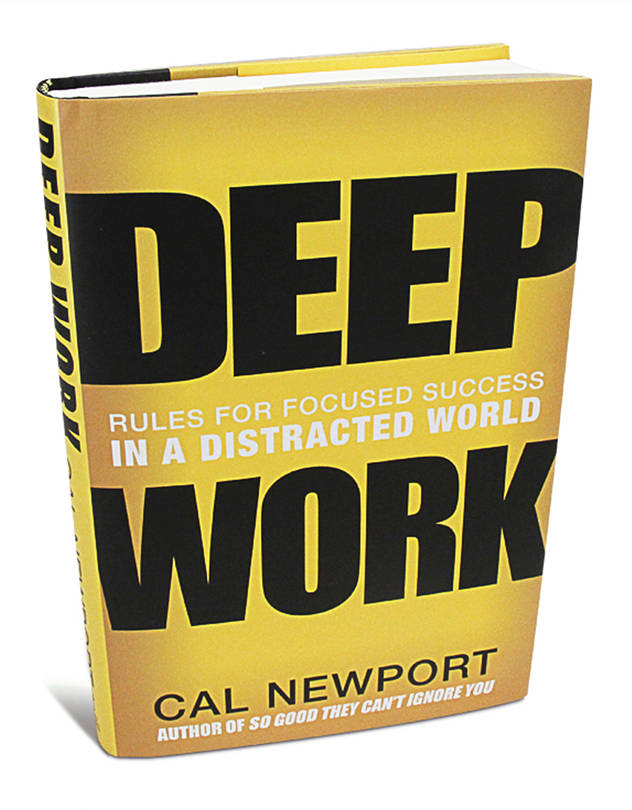
With world getting more and more hyperconnected, distractions lurk at every corner, demanding our attention and fragmenting our ability to focus. As we strive for productivity and success, it becomes increasingly crucial to cultivate the skill of deep work. Cal Newport’s seminal book, “Deep Work: Rules for Focused Success in a Distracted World,” has proven to be a powerful guide for individuals seeking to reclaim their ability to concentrate and produce exceptional work. In this blog post, we delve into the insights presented by Newport and explore the transformative impact that deep work can have on our lives.
Understanding Deep Work: Newport introduces us to the concept of deep work, which he defines as “the ability to focus without distraction on a cognitively demanding task.” He argues that this type of work is not only valuable but also increasingly rare in our modern society. With constant interruptions from social media, email notifications, and endless meetings, our ability to engage in deep work is often compromised.
The Four Rules of Deep Work: To combat the pervasive distractions that hinder our ability to perform at our best, Newport presents four essential rules for practicing deep work:
- Rule #1: Work Deeply. Newport emphasizes the importance of creating a work environment conducive to deep work. By eliminating or minimizing distractions, establishing a routine, and setting aside dedicated time for focused work, we can cultivate the necessary conditions for deep work to flourish.
- Rule #2: Embrace Boredom. In our era of instant gratification and constant stimulation, embracing boredom may seem counterintuitive. However, Newport argues that allowing our minds to wander and resist the impulse for constant entertainment is essential for nurturing our ability to concentrate deeply. By embracing periods of solitude and solitude, we train our brains to resist the pull of distractions and tap into our creativity.
- Rule #3: Quit Social Media (or Use It with Intention). Social media has become an omnipresent force in our lives, demanding our attention and hijacking our cognitive resources. Newport suggests that we critically assess the value that social media platforms bring to our professional and personal lives. If the benefits are outweighed by the costs in terms of distraction and shallow thinking, he advocates for quitting social media altogether or at least minimizing its use to intentional and focused purposes.
- Rule #4: Drain the Shallows. Newport highlights the danger of allowing shallow work—such as responding to emails, attending unnecessary meetings, or engaging in mindless tasks—to dominate our days. To reclaim our time and energy for deep work, we must prioritize and minimize shallow activities that provide little long-term value. By setting clear boundaries and reevaluating our commitments, we can ensure that our efforts are aligned with our goals and aspirations.
The Transformational Power of Deep Work: Engaging in deep work can yield remarkable benefits in both our personal and professional lives. By dedicating undistracted time and attention to our work, we can achieve higher levels of productivity, creativity, and expertise. The ability to focus deeply allows us to generate groundbreaking ideas, produce exceptional quality work, and reach a state of flow—an optimal mental state characterized by heightened focus and fulfillment. Furthermore, deep work enhances our ability to learn, acquire new skills, and make significant progress towards our long-term goals.
Implementing Deep Work Strategies: While the principles of deep work may sound appealing, implementing them requires conscious effort and discipline. To incorporate deep work into our lives effectively, we can start by:
- Designating specific blocks of time for deep work: Establishing a regular schedule that carves out uninterrupted periods for focused work enables us to train our minds and develop deep work as a habit.
- Creating a distraction-free environment: Minimize or eliminate potential distractions by turning off notifications, finding a quiet space, or using productivity tools to block out digital temptations.
- Practicing deliberate practice: Deep work is not just about the quantity of time spent, but also the quality. Engaging in deliberate practice—pushing ourselves to operate at the edge of our abilities and seeking continuous improvement—can exponentially enhance our skills and expertise.
Cal Newport’s “Deep Work” serves as a much-needed wake-up call in a world constantly vying for our attention. By understanding and embracing the principles of deep work, we can transcend the superficial busyness that often dominates our lives and unlock our true potential. As we commit to cultivating deep work as a practice, we will not only reap the rewards of heightened productivity and creativity but also find a sense of fulfillment and mastery in our endeavors. So let us dare to dive deep, reclaim our focus, and unleash our full potential.

